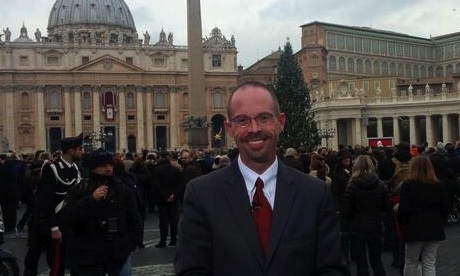Hours before he convened an unprecedented Vatican prayer service for peace in the Middle East, Pope Francis told a crowd gathered in St Peter’s Square that “a church that doesn’t have the capacity to surprise… is a dying church.”
By that standard, Francis showed that Catholicism on his watch is alive and kicking by delivering one of the greatest surprises of his papacy — a peace summit that’s likely to have no immediate impact whatsoever on the Middle East peace process, but that yet still managed to feel like a historic turning point.
In truth, going in to Sunday’s prayer with Palestinian President Mahmoud Abbas and Israeli President Shimon Peres, neither the pope nor his advisers were expecting a miracle.
“Anybody who has even a minimum understanding of the situation would never think that as of Monday, peace will break out,” said Father Pierbattista Pizzaballa, a Franciscan priest based in the Middle East who organised the event.
The pope’s lone ambition, he said, was to “open a path” that was previously closed.
Yet even if nothing results on the Israeli/Palestinian front, there are three reasons why tonight’s “invocation for peace” was much more than a photo-op.
First, it represents a revitalization of the Vatican’s diplomatic capacity after a period in which it hit a nadir. Continue reading.
John L. Allen Jr is associate editor at the Globe, specialising in coverage of the Vatican and the Catholic Church. He also serves as senior Vatican analyst for CNN, and was for 16 years a correspondent for the National Catholic Reporter.
Source: Boston Globe
Image: Patheos
